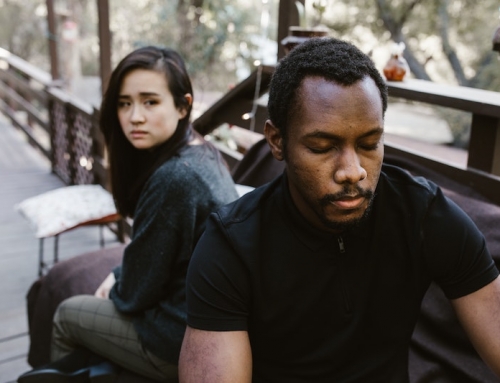Violent Relationships are A Tragedy
When you learn of someone being the victim of violent relationships the first thing that comes to mind is, “Why doesn’t she just leave?” That would be what we would do. Or would we? Why don’t victims of domestic abuse leave their abusers? It seems like the logical solution to this problem. Remove yourself and the problem goes away. Sadly, it’s not that simple. Women especially have other factors to consider when they’re victims of abuse. There are many reasons why she can’t “just leave”.
SEVEN REASONS WHY VICTIMS OF VIOLENT RELATIONSHIPS STAY:
- Fear
75 % of abused women who are murdered are killed after they leave their partners. The abuser may be consumed with jealousy and obsessed with her. If he can’t have her and control her, he may stalk her and track her down. The depth of his sickness means he’ll never give up until he finds her, even if it takes years. Simply moving out or going to a local battered women’s shelter isn’t an option for her. There’s also fear that no one will believe her when she does tell. If the abuse has been kept secret and covered up behind closed doors, no visible injuries are present, and everything looks fine to the outward appearance, there’s no way for her to prove what she is saying is true. These violent relationships will not stop without help
2.Shame
No one wants to admit they’re a victim. There’s a great deal of shame in admitting that you’re letting someone do this to you. Educated women and those in executive positions in business also carry a great deal of shame surrounding “allowing” themselves to become victims. She knows she should have made abetter choice of a partner. What did she get herself into? She should have known better.
3. Guilt
The guilt that accompanies being the victim of abusees part of the mind games the abuser plays. The abuser convinces the victim that somehow, it’s her fault that he’s treating her this way. If she had notprovoked him, or forgotten to iron his shirt or__________ (fill in the blank) this would not have happened, and everything would be fine. The victim hears this kind of talk enough that they begin to believe that they are deserving of everything that happens to them.
4. Economic Reasons
One of ways that an abuser controls his victim is through finances. Violent relationships looks differently in every relationship. If he controls all the money, especially if there are children to be considered, it can be even harder for a woman to walk away into the unknown without any financial resources.
5. Control over Custody of Kids
Another fear tactic is to use the children against the victim. The abuser may threaten to keep her from them if she leaves or may even threaten to harm them physically. What mother in her right mind would walk away from her children if they were at risk of harm or if she thought she might never see them again. Please don’t forget there are many relationships in which the violent relationships is also against the man in the relationship.
6.Belief that the Abuser Will Change
Belief that he’ll change: The cycle of violence and abuse has three distinct phases; tension battery andremorse. During the remorse phase, the abuser apologetic and loving towards the victim; reassuring them that he’ll not do it again and that he’ll change and try harder. The victim wants so badly to believe this that they will agree to stay and try to work things out. They’ll grasp these straw promises and hold on for all they’re worth, until the abuse starts again. This cycle of domestic abuse is not gender specific and becomes pervasive without help.
7.Love
What many people don’t realize is that these two people came together as a couple, as a family and were once deeply in love. The victim knows that they’re in a sick and dangerous situation but deep inside they still have true love for their partner and they want to believe that they can heal and be together in a healthy and loving relationship again. It takes a lot of pain to kill that deep love.
If you or someone you know is in an abusive relationship please ask for help. National Domestic Violence Hotline at 1-800-799-7233







